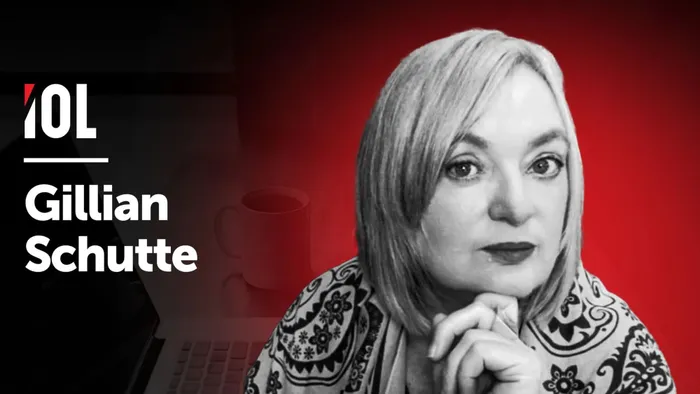
After losing its hatespeech bid to silence the liberation song Dubul’ iBhunu, AfriForum has recast itself as a victim on a Washington roadshow—proof that South Africa’s culture wars now trade on transAtlantic markets.
Image: IOL
The legal campaign by AfriForum against Julius Malema for singing Dubul’ iBhunu exposes a deeper problem in post-apartheid South Africa: the refusal to recognise Black historical expression as legitimate political speech.
The case becomes a proxy for a wider battle—over how trauma is voiced, who owns remembrance, and whose narrative the law protects. Even though the Constitutional Court ruled in March 2025 that the chant does not constitute hate speech and refused AfriForum’s final appeal, the group continues to push a cultural logic that seeks to erase African memory and symbolic resistance.
In the wake of that defeat the organisation’s leadership flew to Washington, DC, courting White-House-aligned conservatives and evangelical pressure groups. There they resurrected the discredited “white genocide” myth, recasting their legal loss as a global human-rights emergency and lobbying for US intervention. Through laundering a local culture war into trans-Atlantic respectability AfriForum weaponises the language of victimhood to criminalise Black grief on an international stage.
The chant in question gained prominence through the ANC Youth League in the 1980s, where it boosted morale, unified activists, and encoded a shared narrative of resistance. It resurfaced during Rhodes Must Fall and Fees Must Fall, accompanying toppled statues, confrontations with institutional power, and the mobilisation of a generation unafraid to connect past to present. Framing it as a Malema issue ignores the collective histories it carries.
Struggle songs such as Dubul’ iBhunu emerge from moments of crisis, mourning, and confrontation. They are ritual expressions forged in the crucible of generational trauma. The word dubula is not a literal instruction. It channels defiance, spiritual rage, and unresolved loss. Bhunu became a cipher for the apartheid state’s armed wing—those who brutalised, detained, and executed under racial law.
AfriForum chooses a narrow, decontextualised reading. Its interpretation deletes the cultural logic of African expression and dismisses the long tradition of symbolic resistance found across pre-colonial societies. Among the Xhosa and other Nguni peoples—including Zulu, Swazi, and Ndebele—war dance was political dramaturgy, signalling readiness without declaring bloodshed. Choreographed movement, chanting, and regalia combined into displays of spiritual authority and communal strength. These traditions preserved dignity, summoned ancestral guidance, and often prevented violence through symbolic confrontation.
The Khoekhoe and ǀXam (San) held equally intricate cosmologies of performance and protest. For the ǀXam, trance dance was healing. It was also social memory and boundary. Khoekhoe resistance rituals used song and oral invocation tied to land custodianship and lineage, later suppressed by missionaries and colonial administrators who labelled them chaotic or threatening. Under settler rule, performance was criminalised; suspicion replaced meaning.
Similar traditions surface worldwide. The Māori haka projects strength, summons ancestors, and faces power, often in peacetime assertion rather than wartime aggression. Indigenous nations across the Americas and Australia use ritual chant and dance as spiritual-political speech—warning, remembering, dignifying in the face of settler encroachment.
Colonial authorities never grasped this. Ritual was “primitive”. Song was “subversive”. Expression itself became a crime. That legacy lingers in how courts treat African performance today.
While Dubul’ iBhunu is condemned and policed, Die Stem remains sacrosanct—its lyrics celebrating settler conquest and Christian dominion. Its presence in the national anthem shows how power still accommodates the spoils of conquest while rejecting the memory of the conquered.
Settler symbols are validated by law; Black resistance is sanitised or prosecuted. The demand is reconciliation without responsibility, visibility without history.
The aftermath tells its own tale. On Human Rights Day (21 March 2025) EFF supporters sang Dubul’ iBhunu in Sharpeville; AfriForum threatened contempt but had no legal foothold. Two months later the lobby group turned to new litigation, filing papers in the Gauteng High Court to strike down the 2025 Expropriation Act as “part of a genocidal land-grab”. Simultaneously, Washington rewarded AfriForum’s alarmism: a special refugee track has begun admitting small Afrikaner cohorts, and an executive order now withholds USAID funds until Pretoria tackles so-called “farm murders”. President Ramaphosa has condemned the campaign as “disinformation diplomacy” and lodged a protest note with the US State Department—but the propaganda has already taken flight. The unresolved question is whether the National Prosecuting Authority has the mettle to deem AfriForum’s trans-Atlantic lobbying an act of treason against the republic.
In the meantime Dubul’ iBhunu will continue to reverberate through the countless protests that mark daily life for South Africans living under the violence of an uncaring state and its austerity diktats. When protestors raise this cry they summon a memory that refuses erasure; they sing because there are still graves without names, families without justice, and land without return.
AfriForum tried to put this memory on trial. But memory does not belong to the courtroom. It lives in voice, in movement, in rhythm. It has rooted itself in streets, struggle, and the spiritual lineage of people who still walk with their ancestors.
The song will outlive the court. It will outlive Kallie Kriel, Donald Trump, and even Julius Malema. The chant already lives in land and collective memory—outside colonial control. And the ancestors are listening.
* Gillian Schutte is a South African writer, filmmaker, and critical-race scholar known for her radical critiques of neoliberalism, whiteness, and donor-driven media. Her work centres African liberation, social justice, and revolutionary thought.
** The views expressed do not necessarily reflect the views of IOL or Independent Media.
Related Topics:
